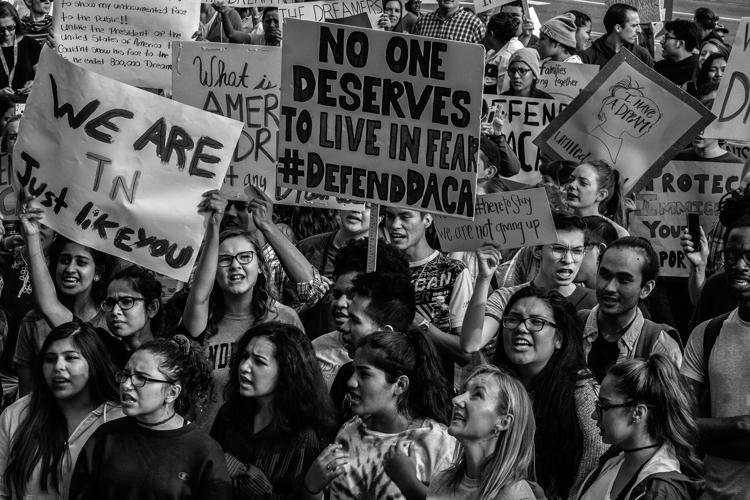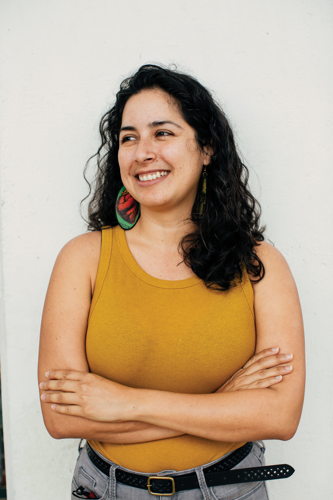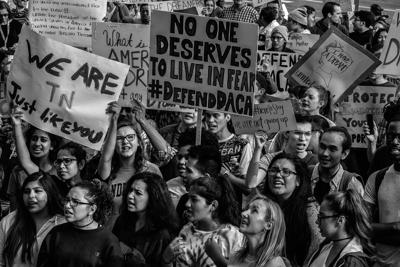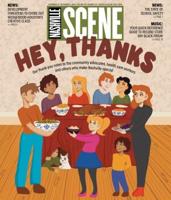As Donald Trump returns to the presidency, many immigrants and immigration advocates are bracing for his promised mass deportations and border crackdowns. One uncertainty is how Trump will handle a policy he once attempted to end: Deferred Action for Childhood Arrivals, or DACA. Barack Obama established DACA in 2012 by executive order, granting young undocumented immigrants the chance to apply for driver’s licenses, pursue jobs, seek higher education and more without fear of deportation. The policy endures today despite various legal challenges.
While DACA is not the pathway to citizenship Dreamers (a term for undocumented young people inspired by legislative proposal the DREAM Act) have long hoped for, it has established stability for them. Trump’s plans for DACA are unclear — and at times he has sounded open to figuring out some kind of plan to help Dreamers — but many experts and advocates are bracing for another fight, given the actions of his first term, continued anti-immigrant rhetoric and his flurry of executive actions from his first day in office this week.
As DACA recipients have aged, and since U.S. Citizenship and Immigration Services stopped granting first time requests in 2021, the average age for a recipient increased from 24 in 2017 to 30 in 2023. A DACA recipient named Sofia, who requested the Scene not use her last name out of concern for her family, says ending DACA would disrupt careers, homeownership and the pursuit of higher education for older recipients. Sofia adds that a lot of recipients don’t know what it’s like to be “undocumented adults” — they’ve had some form of status since their late teens or early 20s. “Many of us have now found our footing in Nashville, and for that to be taken away is very scary,” she says.
Sofia and two other longtime Nashville residents shared with the Scene their experiences navigating Middle Tennessee as DACA recipients and their concerns about the next four years. Testimonies have been edited for length and clarity.
Brenda Pérez

Brenda Pérez
I’ve been in Nashville for the majority of my adult life. I have seen this place expand from a sleepy town where you could drive across the city at 4 p.m. to a bustling city with new neighborhoods and exciting places to explore. In the mid-2010s, I discovered the joy of biking in Nashville. I would bike to work from my house on Shelby and 15th Street (back when you could find a two-bedroom, one-bath for $750) to Rosario’s (since closed) in the newly redeveloped Edgehill area. During those work commutes, I would hear Spanish conversations echoing through the construction sites of the Schermerhorn, Music City Center and Gulch area. I would say “buenos dias” to the surprise of the construction workers, and they would respond. I knew that as a woman, biking in a city with anti-immigrant policies — such as the now-defunct 287(g) program, which allowed the sheriff’s office to initiate deportations — saying “buenos dias” was claiming space in a city that wanted our labor but not our existence.
As a DACA recipient, my relationship with Nashville is complex. I hold a deep, caring love and accountability toward this city (and its elected officials). I have been here for a long time, and most people’s response when they learn I’ve been here for 23 years is, “Oh, so you’re basically from here.” Nashville is my home, but I am not from here. I am Mexican — a full Mexican citizen — even though I have lived the majority of my life in the U.S.
Every four years, through my status as a DACA recipient, I become a pawn in the political landscape. DACA holders are often treated as a different type of immigrant because our tongues are fast and we can “clap back,” because we sound like we belong here, and some of us have Southern drawls. But as DACA holders, whether we’re in school or working day jobs, we are not different from the construction workers who may have just arrived here. We are not pawns. We are not here to be disposed of or pushed aside as the political landscape shifts. We are not tokens to be traded in at the mayor’s office, governor’s mansion or in D.C. Our labor, our culture, our hands, our years and our very existence have built, shaped and nurtured this city and its continued growth.
So perhaps I should revisit how I answer the question, “Oh, so you are from here?” Yes, I am from here and there. I can claim both.
Alan Luna

Alan Luna
[Receiving DACA] was a night-and-day difference. It’s one of the most immediate changes I’ve ever seen. I went from working jobs where I wasn’t paid the legal minimum wage just to get by … to being fully like my peers. Once I received DACA, I was able to just get a normal job at the mall or get my driver’s license and really put myself out there. All of a sudden, college was an opportunity that was open to me. I never even thought about it — not because I wasn’t smart or anything, but it just didn’t feel like something that was in my future. Just getting DACA and my work permit, it made everything more of a possibility. … To put it succinctly, I wasn’t living in fear anymore.
One thing that I think most DACA recipients share is that it’s not just about us. We really have this mindset of moving our family forward, moving ourselves forward, [as well as] everybody around us. It’d be great if we could have some sort of reform for DACA [and] have some protection assured for loved ones. …
People have become resigned a little bit, just because it’s been a lot of years, and things seem like they haven’t moved much since then. But I’m not gonna just give up on that. … It’s a $500 application; it’s not cheap. People have to spend money on it, but it’s well worth it if it means two more years and being protected and being able to work and provide and do whatever you have to do. As told to Alejandro Ramirez
Sofia
My advice to anyone who is … feeling some sort of anxiety or fear [is to] continue to be in community, to reach out to folks who can help you, to inform yourself, to train yourself on knowing your rights — on knowing what to do when an ICE agent comes to your house or your place of work or your place of worship. … That’s something that I’ve done myself, and that I’m continuing to do because I was that person who woke up [after Election Day] and was scared and felt like my whole world was crumbling. It felt very overwhelming, and I felt like I was drowning in this sense [that] people are against us. But to also then be in a community and seek out folks and groups in Nashville who in fact are fighting for the immigrant community, who in fact are standing for and speaking out for our rights — finding that community in Nashville has also been very heartwarming and affirming.
I’ve been in Nashville for so long. I went to MNPS schools, and graduated from them. I went to get my bachelor’s in education, and I’m now working in the field. … I feel as much a Nashvillian as anyone else. So regardless of what happens next year, I know that home is here. Home is in Nashville, and that’s something that we’re going to continue to fight for. As told to Alejandro Ramirez







